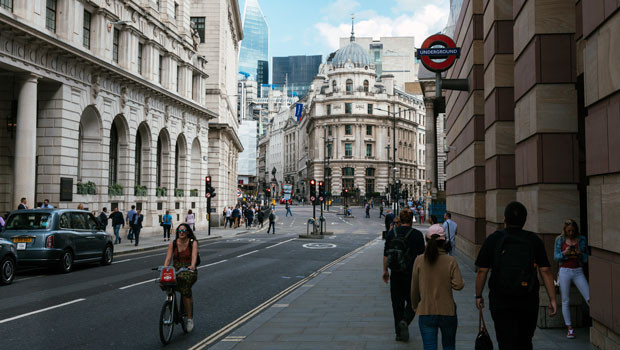UK growth slows more than expected in February

UK economic growth slowed more than expected in February, according to figures released on Monday by the Office for National Statistics.
GDP rose 0.1% on the month in February, down from 0.8% in January and coming in below consensus expectations of 0.3% growth.
That left the economy 1.5% above its pre-coronavirus level in February 2020.
The services sector grew by 0.2% and was the main contributor to February's GDP growth. This was partially offset by production, which fell by 0.6% and construction, which dipped 0.1%.
Darren Morgan, director of economic statistics at the ONS, said growth was also held back by a reduction in the NHS Test and Trace and vaccination programmes, which had contributed strongly to GDP at the start of the year.
Ruth Gregory, senior UK economist at Capital Economics, said: "The pace of the recovery was already going to slow once the post-Omicron bounce faded and the squeeze on household real incomes intensified. But we hadn’t expected it to slow so much so soon.
"We now think the economy may have grown by 1.0% q/q in Q1 as a whole, down from our previous estimate of 1.1% q/q. And the risks for our economy to grow by 0.2% q/q in Q2 are tilted to the downside.
"Even so, with high inflation feeding through into higher price/wage expectations, we doubt this will prevent the Bank of England from raising interest rates further to 1.00% at its next meeting on 5th May, and to 2.00% next year."
ING economist James Smith said: "We expect first-quarter GDP to come in at roughly 1% before turning negative in the second quarter. We expect a small contraction of -0.2/-0.3%, though for now, the jury’s out on whether that evolves into a technical recession (requiring a subsequent fall in GDP in the third quarter).
"With the growth backdrop deteriorating, we expect the Bank of England to pause its tightening cycle by the summer following one or two more 25bp rate rises. Policymakers subtly began to lay the groundwork for this at the March meeting, where the overall tone was more cautious and the decision to raise rates was not unanimous."